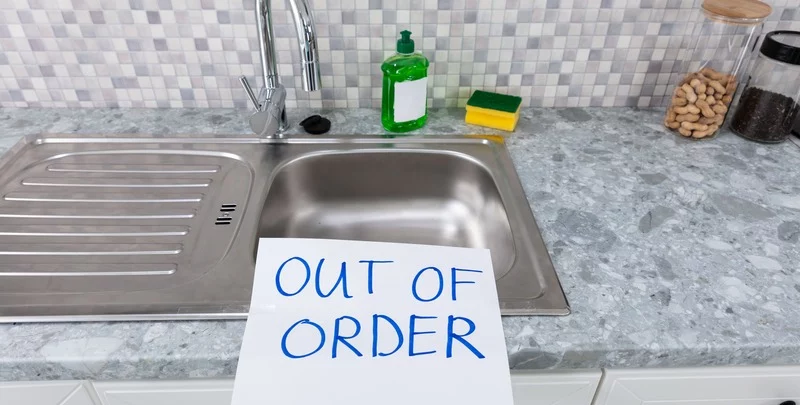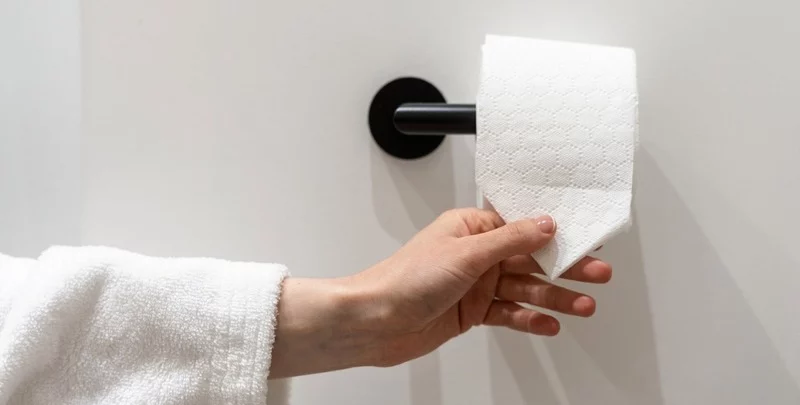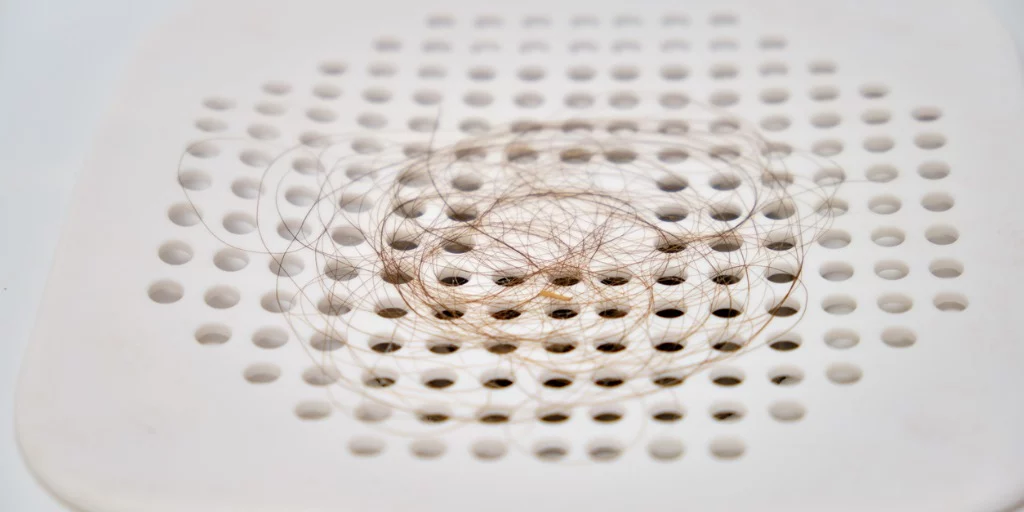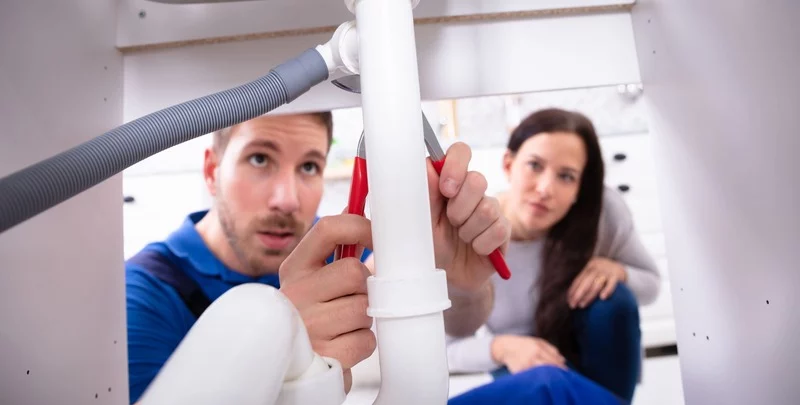
8 Top Tips to Prevent Blocked Drains in Your Home
One of the most common domestic plumbing issues that a plumber will encounter daily is blocked drains. Whether it’s from burst pipes, a clogged shower or a blocked sink drain, they can cause a multitude of problems in and around your home.
From health risks caused by bacteria growth to unpleasant smells, leaking pipes and a general compromise of your plumbing system, these are just a few of the issues you might face as a result of drain blockages.
But it is possible to minimise the likelihood of your drains clogging up and causing all manner of chaos and disorder throughout your house. There are numerous blogs on the internet telling you about clearing blocked drains. Here are eight helpful tips to help you prevent the need to clear a blocked drain in the first place.
1. Watch What You Flush Down the Toilet
One of the biggest causes of blocked drains is people flushing items and materials down the toilet. They might believe that they’ll flow freely through the outdoor drains without incident. However, more often than not, they end up clogging the system.
If you’re flushing away anything other than the three Ps – those being pee, poo and (toilet) paper – you run the risk of creating probably the most unwanted drain blockage of all. Any other paper products, such as paper towels and tissues, haven’t been designed to break down like toilet paper. They will likely only build up in the drain and add to already severe blockages.
We also strongly recommend avoiding flushing female hygiene products and – despite their labelling and marketing – flushable wet wipes. These products are typically made of cotton and plastic and therefore haven’t been designed to break down. Disposing of them in the bin instead of flushing them down the toilet will be one of the most effective ways to avoid a blocked toilet or drain.

2. Watch What You Dispose of in the Kitchen Sink
When you’ve finished dinner, it’s often tempting to scrape the food waste down the sink before hand washing the plates or loading them into the dishwasher. Food scraps, as it happens, are to kitchen sinks what flushable wipes are to toilets. They’re a one-way ticket to a clogged drain.
The scraps can accumulate in the sink pipes and, over time, cause a blockage in the system. Scrape off any food debris or leftovers into the bin before you wash your dishes, whether in the sink or the dishwasher. Cleaner plates will reduce the strain washing dishes puts on the mechanics of your dishwasher. They will also reduce the build-up of food waste in your kitchen sink pipes.
3. Cooking Oil + Kitchen Sink = Drain Blockages
Similar to point two, after cooking you might find yourself with some used cooking oil left over that you need to dispose of. Though you might think to yourself “It’s liquid, therefore it should be safe to pour down the sink”. However, that is the last thing you should do.
Doing that will only cause the oil to solidify once it makes contact with cold water in the pipes. It will just sit in the pipes and cause a blockage. One that only a high pressure water jet will be able to fix. Suddenly, that saying “oil and water don’t mix” takes on more significance, doesn’t it?
To play it safe and reduce the risk of blocked sinks or clogged drains in your home, we’d suggest avoiding disposing of any liquids down the sink that aren’t primarily water-based. Instead, wipe up any remaining oil, fat or grease with some paper towel, and dispose of it in the bin.
4. Keep Your Shower Drains Clear and Clean
Another highly common cause of blocked drains is the presence of hair and soapy residue that gets washed away in the shower or bath. The combination of hair and soap can create a gunky mess that can build up in the shower drain and cause a blockage.
The best way to prevent this is to keep your bath and shower drains clean and clear of any build up. This is relatively easy; the simplest method for basic blockages just requires some ingredients from the kitchen!
Start by pouring boiling water down the drain. Follow that by pouring a cup of baking soda and then one cup of vinegar down the drain as well. Give it about 15 minutes to settle before flushing with more boiling water. This should clear away any build-up of hair and soap and, if you do this regularly, will prevent unwanted blocked drains.

5. Use Drain Strainers and Hair Catchers to Prevent Blocked Drain
You can do all you like to keep your shower drain, bathroom sink and kitchen sink clean and clear. However, the likelihood is that some stray body hairs and food particles will find their way down the hole.
Over time, these can accumulate in the pipes as stubborn blockages. To resolve them, you’ll likely need a drain auger or plumber’s snake. But by using a drain strainer in the kitchen or a hair catcher in the shower, you can potentially prevent those loose hairs and food particles from entering the drainage system and thus stop a blockage from occurring.
They fit quite easily over the drain hole. Just be sure to clean them regularly for continued maximum effectiveness.
6. Use a Lint Trap in the Laundry
So far we’ve talked a lot about the bathroom and kitchen areas of the home. But the laundry is another area of the house that warrants attention.
If you’re washing clothes that create a lot of lint with each wash and wear, that lint can clog the pipes connected to your washing machine and cause blocked drains. A lint trap can be an effective way to prevent lint, small pieces of fabric and hair from getting into your washing machine’s drainage system.
Some machines might have a lint trap filter already built into the agitator. However, you might also be able to purchase a lint trap to use in your machine. Just be sure to give it a clean when needed.
7. Steer Clear of Fitted Toilet Bowl Plastic Deodorisers
You know the ones. They hang on the rim of the toilet bowl and make the water look blue and fresh with each flush. They make your toilet bowl look as appealing as a toilet bowl can look. However, if it breaks off or somehow comes off the rim and gets flushed away, you could end up with a blocked drain.
If you want to keep the toilet looking and smelling fresh, keep a toilet brush and a natural air freshener handy.

8. Have Your Pipes Inspected
Sometimes, circumstances that are well out of your control can become the cause of blocked drains. Older or poorly installed pipes might start to crack or show signs of wear and tear. This can reduce water pressure, block sinks and diminish their effectiveness.
Tree roots can penetrate and grow through the pipes, again compromising their ability to drain effectively. A young child might flush foreign objects down the toilet, accidentally or intentionally, that settle in the pipes. Having a licensed, professional plumber inspect your pipes every two or three years can be useful in identifying potential problems that might lead to blocked drains in the future.
When It Comes To Avoiding Blocked Drains
Blocked drains in the home can cause a vast range of problems. These include everything from health issues, to mould growth and unpleasant smells. But there are numerous ways to prevent blocked drains in the home, including:
- Being mindful of what you flush down the toilet
- Scraping food debris into the bin rather than down the kitchen sink
- Disposing of cooking oil and other fats and greases in the bin, not down the sink
- Pouring hot water or baking soda and vinegar down the shower drain
- Using hair catchers and drain strainers to catch food particles and loose hairs
- Using a lint trap filter in your washing machine
- Not using toilet deodorisers that can accidentally get flushed or break off
- Regular pipe inspections by a licensed plumber
When it comes to blocked drains, prevention is generally better than cure. Of course, if your drainage system does suffer a severe blockage that a plunger or DIY drain snake cannot fix, get in touch with a licensed plumber ASAP.
Please note: This information is provided for advice purposes only. Regulations differ from state to state, so please consult your local authorities or an industry professional before proceeding with any work. See our Terms & Conditions here.
Published: 2022-12-14

















